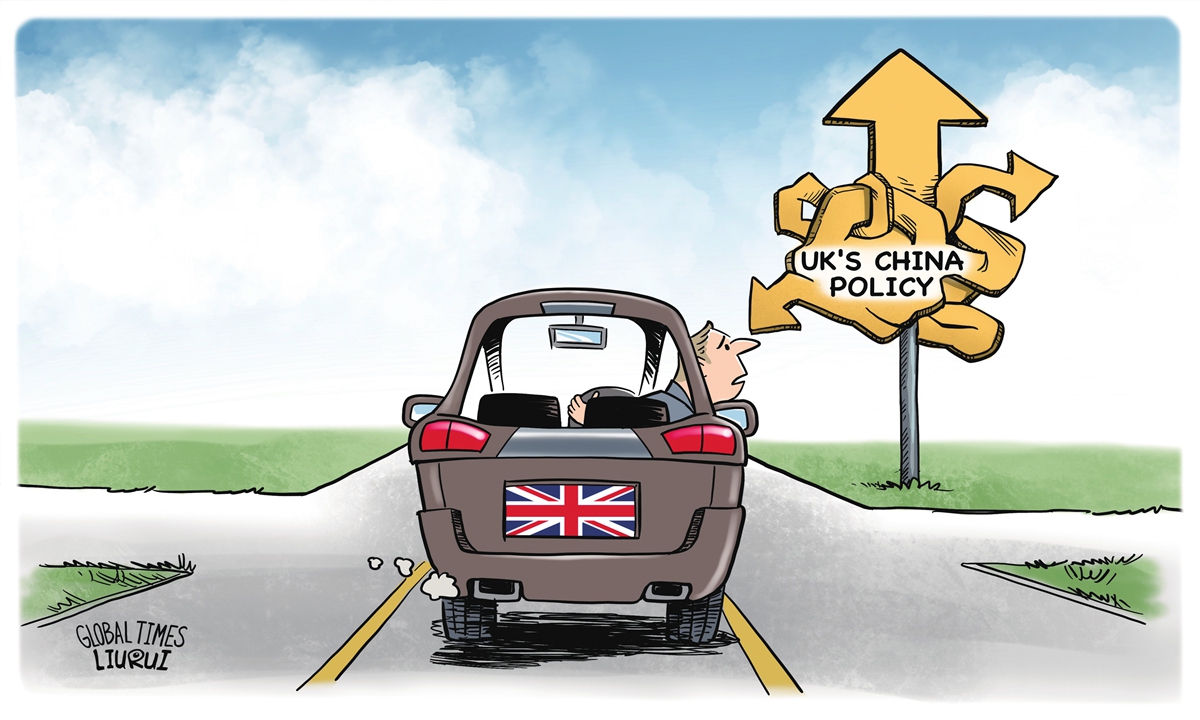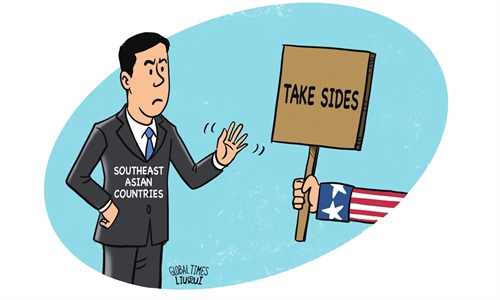
Illustration: Liu Rui/GT
The Commissioner's Office of China's Foreign Ministry in Hong Kong issued a statement on Tuesday expressing firm opposition to British Foreign Secretary David Lammy's recent Hong Kong-related remarks, solemnly demanding the UK side "abandon its hypocritical double standards and political show."
It all started with an X post from the British politician on Tuesday, where he confirmed that last week he met with Sebastien Lai, son of Hong Kong secessionist Jimmy Lai Chee-ying. "Your father's case is a priority for the UK Government. We will continue to press for his immediate release and for consular access," he wrote.
The UK has been paying great attention to the Jimmy Lai case, crying foul over so-called human rights abuses in Hong Kong region, using it as an important means to extend its long-arm jurisdiction over Hong Kong affairs. Against the background that Lai's trial case will resume on November 20, it is hard not to see Lammy's statement as an attempt to interfere with Hong Kong's judicial independence and the spirit of the rule of law. His words sound somewhat confusing and jarring coming from a high-level official of an administration seeking to mend relations with China.
The current British government is seeking a 3c strategy toward China, namely "challenge, compete, cooperate." Li Guanjie, a research fellow with the Shanghai Academy of Global Governance and Area Studies under the Shanghai International Studies University, told the Global Times that the Labour administration maintains a confrontational attitude toward China over sensitive issues, including the Hong Kong-related ones. This is, in general, in line with Washington's attitude toward China.
However, Li also warns that this part of China-UK relations, which could be categorized as what the Labour Party calls "challenges," has become more prominent than the cooperation part. This will exert some impact on the cooperation between the two sides, and will directly affect the speed of the bilateral ties' development, he added.
In terms of the relationship with China, the UK is now torn between different approaches. On the hand, China is not only a major trading partner of the UK, but also a key player in the global supply chain. Thus, the British government obviously benefits immensely from the economic cooperation with the Asian country.
On the other hand, it is reluctant to give up its ideology-first approach toward some China-related issues. Instead, it stubbornly uses its own bias to judge and even try to interfere in China's internal affairs.
China's attitude toward such interventions has been very clear: They are completely unacceptable and will never succeed. If Britain continues to do so, then considering the sensitivity of the current China-UK ties, it will likely further aggravate the confrontation between the two countries' stances over these issues and undermine the atmosphere of bilateral cooperation.
Lammy just finished a visit to China last month, the highest-level trip to China since the Labour government came to power in July. In his talks with Wang Yi, a member of the Political Bureau of the Communist Party of China Central Committee and Foreign Minister, the British official expressed the British government's commitment to "strengthening dialogue and cooperation with China and effectively managing differences in a coherent, mutually respectful manner that serves the long-term interests of both sides."
This is the right direction to go for the China-UK relationship, and such momentum in favor of the healthy development of the bilateral relationship in the long term should be sustained. Yet, London's actions need to keep up with its words.
Going back to viewing China through Western "values" without any respect for its sovereignty and interests will lead the China-UK ties nowhere.
Hopefully the Labor Party will have the wisdom and courage to truly take a rational approach with China and prevent the values-first approach and the "challenge" part from overshadowing the prospects of advancing pragmatic cooperation in bilateral ties.



